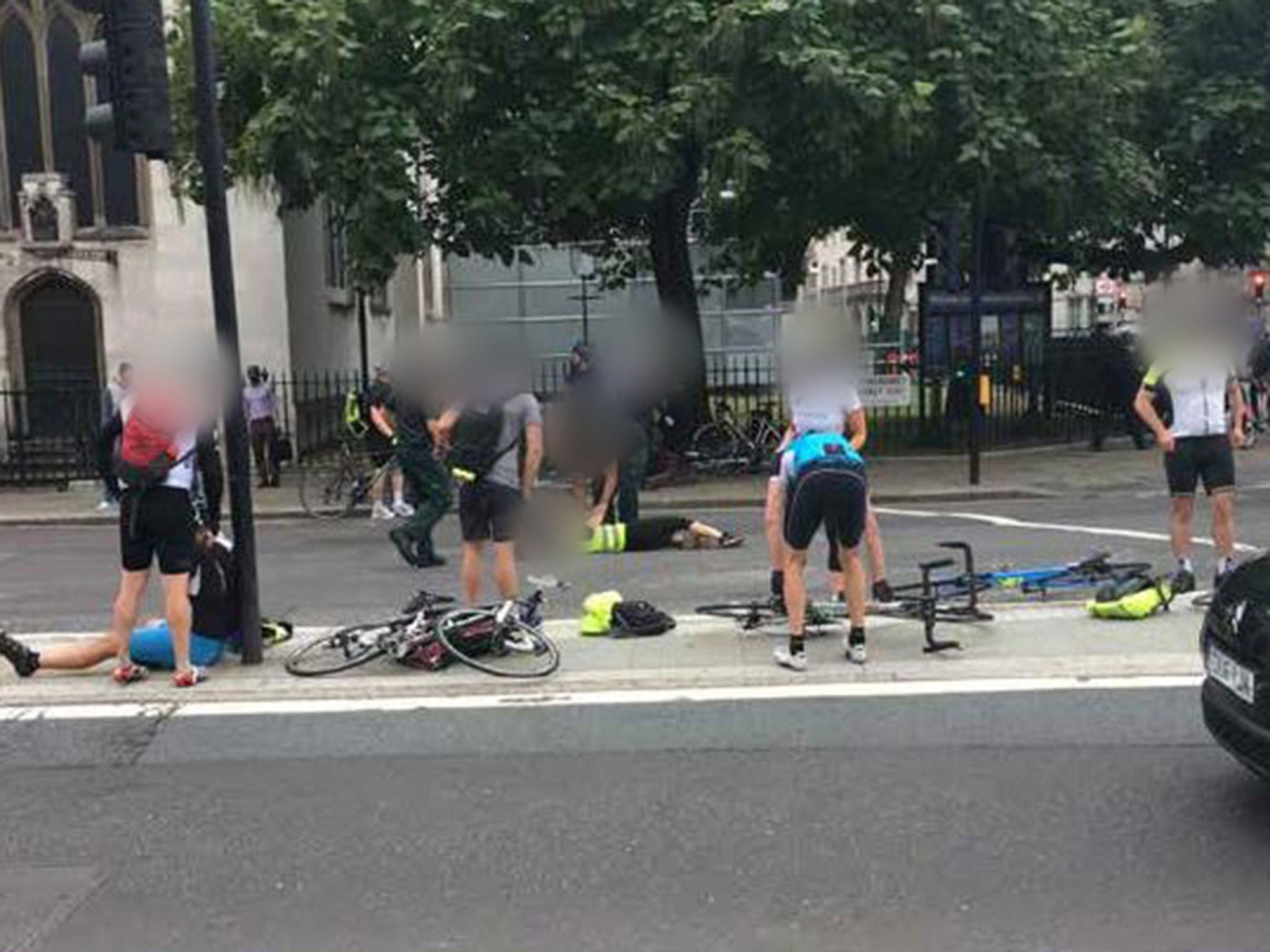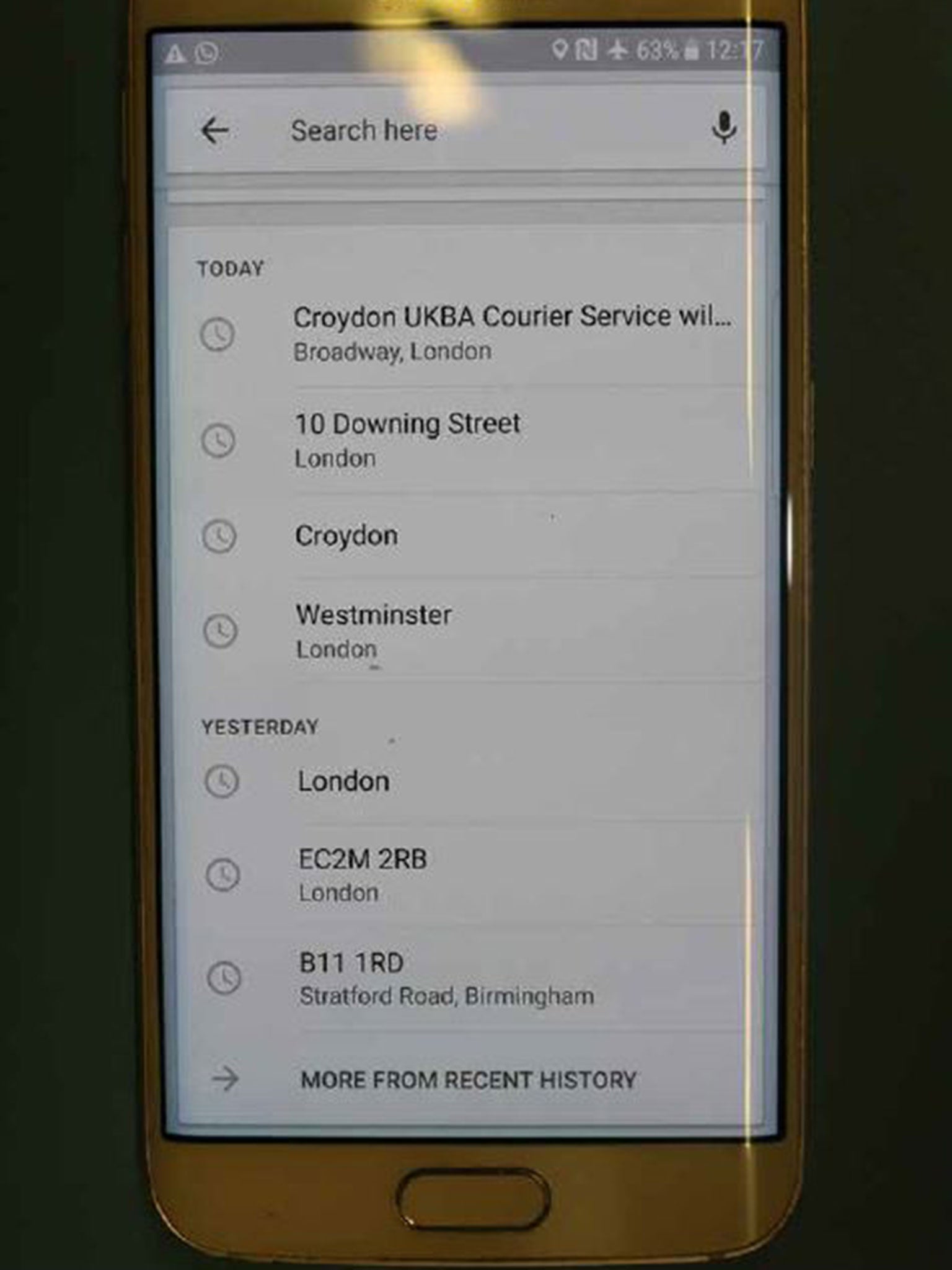Westminster car attack: Driver Salih Khater convicted of trying to murder police and public in ramming
Prosecutors claimed crash was terror attack but no extremist material was found at Khater’s home
A man has been convicted of trying to kill police officers and members of the public by driving into them outside the Houses of Parliament.
Salih Khater ploughed his car into cyclists and pedestrians in Westminster before heading for uniformed police officers on 14 August.
Prosecutors claimed the incident was a terror attack because of the method of attack and its location, but found no extremist material at Khater’s home.
The Old Bailey heard that the 30-year-old refugee drove from Birmingham to London in the early hours of the morning after searching for directions to Downing Street and Westminster as “deliberate targets”.
Khater was caught on CCTV driving around the area and looping around Parliament Square four times before launching the attack at the start of morning rush hour.
The court was played footage of his car ploughing through a group of cyclists waiting at a traffic light, before swerving towards a barrier manned by uniformed police officers at 30mph.
They dived out of the car’s path as it accelerated towards them, while injured cyclists lay scattered in the road screaming in pain. Several needed hospital treatment.
The court heard that as armed police removed Khater from the car, he confirmed he was acting alone but failed to explain himself.
At trial, Khater claimed the crash was an accident and denied attempted murder, but prosecutors said the manoeuvres could not have been accidentally performed and there was no fault with his Ford Fiesta.
Alison Morgan QC accused Khater of carrying out a “premeditated and deliberate attack on civilians and police officers in Parliament Square”.
She added: “His weapon was not a gun or a knife but his car. His actions were not a mistake or as a result of some kind of mechanical error to his vehicle.
“They were deliberate and designed to cause maximum death and injury.”
Ms Morgan said Mr Khater’s motives were unclear and “nothing of significance” was found at his home.

But she told the jury that there was “no credible explanation” for the crash other than it being a “calculated and targeted attack”.
“The defendant selected an iconic site – this was no coincidence,” Ms Morgan said.
“It is a location of national importance and one that had been subjected to terrorist attacks in very recent history.”
Khater, of Highgate Street in Birmingham, claimed he drove to London to obtain a visa from the Sudanese embassy.
Giving evidence, the defendant said he wanted to return to Sudan to visit his sick mother and had googled Downing Street and Westminster in his bid to find his way around central London.
He told jurors he “got lost” and “panicked” when he crashed into cyclists and was trying to pull over when he hit barriers in the security lane outside parliament.
“I remember something made me panic,” Khater said. “The car was not in my full control at the time.”
The jury deliberated for two days before rejecting his explanation and finding him guilty of two counts of attempted murder on Wednesday.
Mrs Justice McGowan remanded Khater in custody to be sentenced on 7 October, and ordered reports to help her determine his potential dangerousness.

She will determine whether the attack had a “terrorist connection” at the hearing.
The court heard that he was born in Darfur, Sudan, but arrived in the UK in 2010 and successfully claimed asylum after claiming to have been tortured because of links to the country’s Justice and Equality Movement.
Ms Morgan said Khater lived in different properties in Birmingham, including above an internet cafe where a patron noticed that his “mood changed” in the months before the alleged attack.
“Precisely why he wanted to kill people who he did not know is not clear,” Ms Morgan told the jury.
“But you may think that by targeting Parliament Square, by targeting people that he did not know, and ultimately by attacking police officers guarding the Palace of Westminster, the defendant had a terrorist motive.”
Khater, who was not known to MI5 or counterterror police, had been studying accountancy at Coventry University, but failed his exams and was asked to leave at the end of the 2018 academic year.
During the same period, prosecutors said he displayed “signs of paranoia” about the actions of British authorities, writing an email to Jeremy Corbyn’s office on 24 May 2018 about an “event” which he believed involved the intelligence service.
In the immediate aftermath of the attack, friends of Khater had expressed shock and insisted he was a “very good man”.

Nassar Mahmood, a trustee at the Birmingham Central Mosque – which sits near the attacker’s home – said he did not worship there and enquiries suggested he was not a “fervent” Muslim.
A friend of Khater told The Independent he was “a normal Muslim, he’s not radical – he prays five times a day and that’s it, he doesn’t wear religious clothing”.
Khater described himself as a shop manager on his Facebook page, which also indicated a liking for Celine Dion and Rihanna.
The “about” section read: “In past I’m great but now I say I don’t no [sic].”
Commander Clarke Jarrett, head of the Metropolitan Police Counter Terrorism Command, said: “Through our investigation, we found that Khater acted completely alone. We made extensive enquiries and searched his address and his digital devices, seeking evidence that could explain why he did this.
“Khater remained silent throughout our investigation and only at his trial offered the implausible explanation that it was an accident. However, the evidence showed otherwise and he now faces a considerable time in prison.”
Jenny Hopkins, of the Crown Prosecution Service, said: “It was only quick reactions and good luck that stopped Khater killing anyone when he drove his car into cyclists and police officers outside Westminster.
“His driving was so precise and determined that it was difficult for skilled accident investigators to repeat the manoeuvre he carried out.
“Whatever his motives, this was not an accident. It was a deliberate attempt to kill and maim as many people as possible.”

